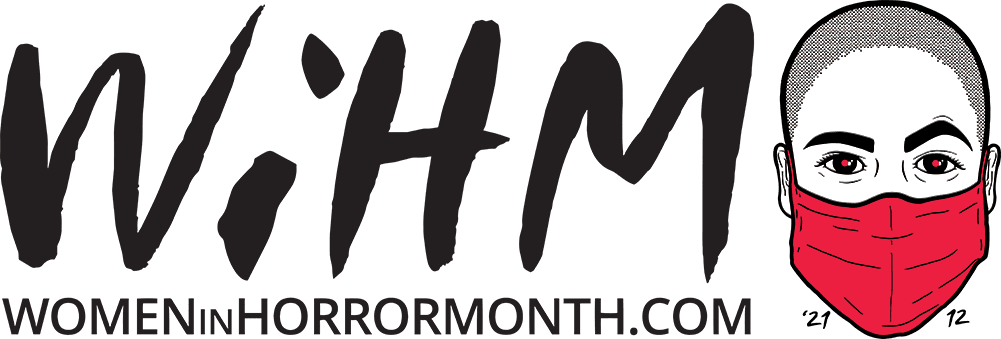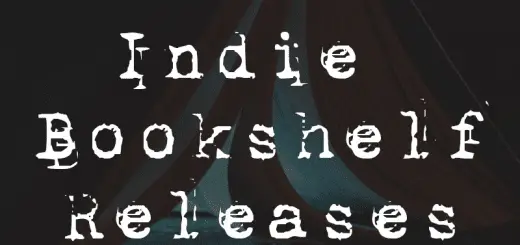WiHM 12: Quick Six Questions With Gemma Files

Editor’s Note: Disclaimer, this paragraph includes an affiliate link which means a small portion of the sale at no additional expense to you may go to Horror Tree. Gemma didn’t include it in her interview, but her latest novel, ‘That Endlessness‘ is due out today!
Welcome to The Horror Tree, and thank you for participating in Women In Horror Month. First, tell us a bit about yourself and your interest in horror.
Formerly a film critic, journalist, screenwriter and teacher, Gemma Files has been an award-winning horror author since 1999. She has published for collections of short work, three collections of speculative poetry, a Weird Western trilogy, a story-cycle and a stand-alone novel (Experimental Film, which won the 2015 Shirley Jackson Award for Best Novel and the 2016 Sunburst award for Best Adult Novel). She has a new story collection upcoming from Grimscribe Press (In This Endlessness, Our End, February 2021).
My interest in horror, meanwhile…horror has always been my meat, pretty much from the beginning. As Yukio Mishima once put it, “my heart’s yearning has always been for night, and death, and blood.”
Why is Women In Horror Month important, and what do you say to someone who says ‘Oh, I don’t care if it’s by a man, a woman, etc., as long as it’s a good story’?”
When I first started writing horror, there were two basic problems I confronted almost immediately. The first was a general lack of understanding about what horror not so much was as could be…I remember telling people I wanted to write horror movies, at which point they would say: “Like Friday the 13th?” and I’d answer: “No, like Nightbreed or Hellraiser,” and they’d look at me uncomprehendingly. This has changed a bit, in that people now understand horror’s a genre which embraces both The Haunting of Hill House and Hostel, rather than just the intersection of gore and porno streets–and better yet, you can make money from it! But the second problem still sticks around: Horror is, as per mainstream culture, usually perceived as being a normative genre in which the default is championed and the Other…othered, punished for its deviation from the norm. Whereas that really isn’t true, and hasn’t ever BEEN true–horror is the monster’s genre. It belongs to the different, the strange, the weird, the estranged; women, queer people, trans people, W[riters]OC, the physioogically and neurologically different, etc. So is Women in Horror Month important? Absolutely, but only as a transitional tool–the point is to get to where we can discuss non-defaut people who write/create horror all year ’round.
In terms of the second question, I guess I’d ask that person to think about why people centralizing their own identities reads like some sort of red flag to them. I think we can all agree that the moment where we recognize ourselves in the stories we love is a moment most consumers–and creators–find extremely fulfilling and inspiring. Why would anybody assume that all those moments have been handed out already, that there was a certain quota of those moments, and nobody else deserves to have one? Or several?
Who are some Women In Horror (or other women) who have influenced your work, and why?
When I first started writing, the women who influenced me most directly were Tanith Lee, Kathe Koja, Anne Rice, Melanie Tem, Caitlin R. Kiernan and Billy Martin (then known as Poppy Z. Brite, before his transition). Even here, however, you can see the lines of presentation and identity beginning to blur. Later, I ran across older writers like Marjorie Bowen and Vernon Lee, Edith Wharton, Mary Butts, Elizabeth Bowen, Elizabeth Gaskell…people who resonated with me, the same way contemporary writers like Priya Sharma, Kristi DeMeester, Sonya Taaffe, Fiona Maeve Geist and so many, many others also resonate with me. Whenever I read something that makes me want to snack on another female-presenting writer’s brains, it makes me very happy.
2020 will probably be remembered as a TERRIBLE year for many of us; tell me something GOOD that happened in the past 12 months.
Funnily enough, 2019 had already ended on a pretty awful note for me, in that it was the year my “home” publishing house–ChiZine Publications–collapsed, very suddenly and publicly. So one of the best things I discovered over 2020 was not only that I could survive that, but that there were also apparently quite a lot of people who wanted me to survive it, and were willing to help me survive it. On a less self-centred note, however, it’s been really interesting realizing that even amongst all these seemingly world-wrecking events, life simply…continues, no matter what. The sun comes up, the sun goes down, the laundry still has to get done. And love definitely helps.
What have you got planned for Women in Horror Month, and the coming months of 2021?
I have a personal reading list I’m trying to get through, slowly, mainly composed of books I’ve had on my phone for a while but haven’t read yet. At the moment, I’m working through Women’s Weird: Strange Stories by Women, 1890-1940 (ed. Melissa Edmundson); later entries include Alma Katsu’s The Deep, Sarah Langan’s Good Neighbours and Gayl Jones’s Corregidora. My new collection of short fiction is also coming out this month–In That Endlessness, Our End (Grimscribe Press), which mainly consists of stories I’ve written since just before 2016. (I’ve gotten into the habit of calling the first entry, “This Is How It Goes,” a “pre-pandemic post-apocalyptic tale.”) Otherwise, I’m surfing several deadlines at once, as usual, and working on three different potential novels. Always something.
Is there anything else you’d like to tell our readers?
I’d like to thank them for their interest, and suggest that if they want to catch up with me, the best places to do that are through Open Road Media (who reprinted all my CZP books), Trepidatio Publishing (who published my last two collections), Twitter and Facebook. I’m listed under my own name, for my sins.
Thanks for participating in Women in Horror Month!
Thanks for having me!











